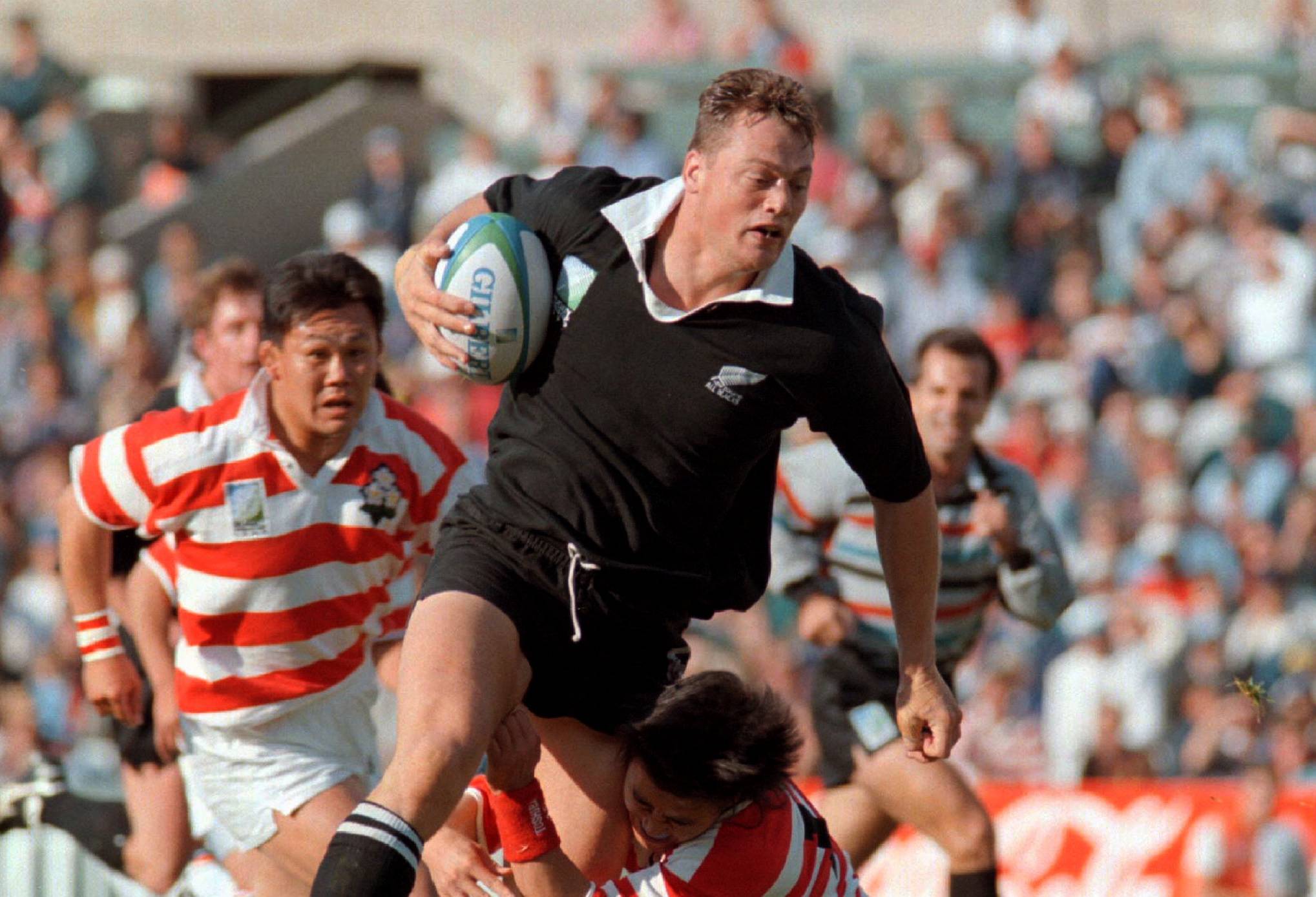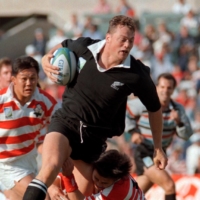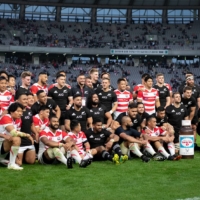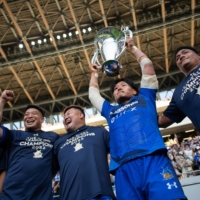A domestic record for test match attendance was set this past summer when 57,011 spectators saw Japan narrowly miss out on an upset of 2023 Rugby World Cup host France at the National Stadium in Tokyo.
Just three months later that mark is set to be eclipsed, with 63,000 tickets already sold for the Brave Blossoms’ upcoming clash with New Zealand on Saturday at the same venue.
Despite some recent struggles, the All Blacks remain one of the world’s top sides, and clearly a major draw in this country.
By their own lofty standards, however, the three-time world champions have endured a tough couple of years.
A first-ever series loss on home soil to Ireland in July brought New Zealand’s record against the men in green to 3-5 since 2016.
That’s a shocking turnaround against an opponent that had needed 111 years to get its first win over the All Blacks.
With two defeats to Argentina since 2020 further puncturing New Zealand’s once-invincible air, it’s no surprise that talk of Japan adding to its recent list of upset victories is starting to grow.
Underestimating the All Blacks, though, would be a mistake according to Kyodo News journalist Rich Freeman.
“There are people saying ‘New Zealand are there for the taking’ but you never write off the All Blacks. Not even South Africa or Australia would ever write off the All Blacks,” Freeman told The Japan Times. The veteran rugby reporter, who many credit with creating the Brave Blossoms moniker, mainly has concerns about the home side’s defense.
“My biggest worry is that Japan shipped 48 points against Australia A, and if you ship 48 against Australia A, what are you going to ship against the All Blacks?” he added.
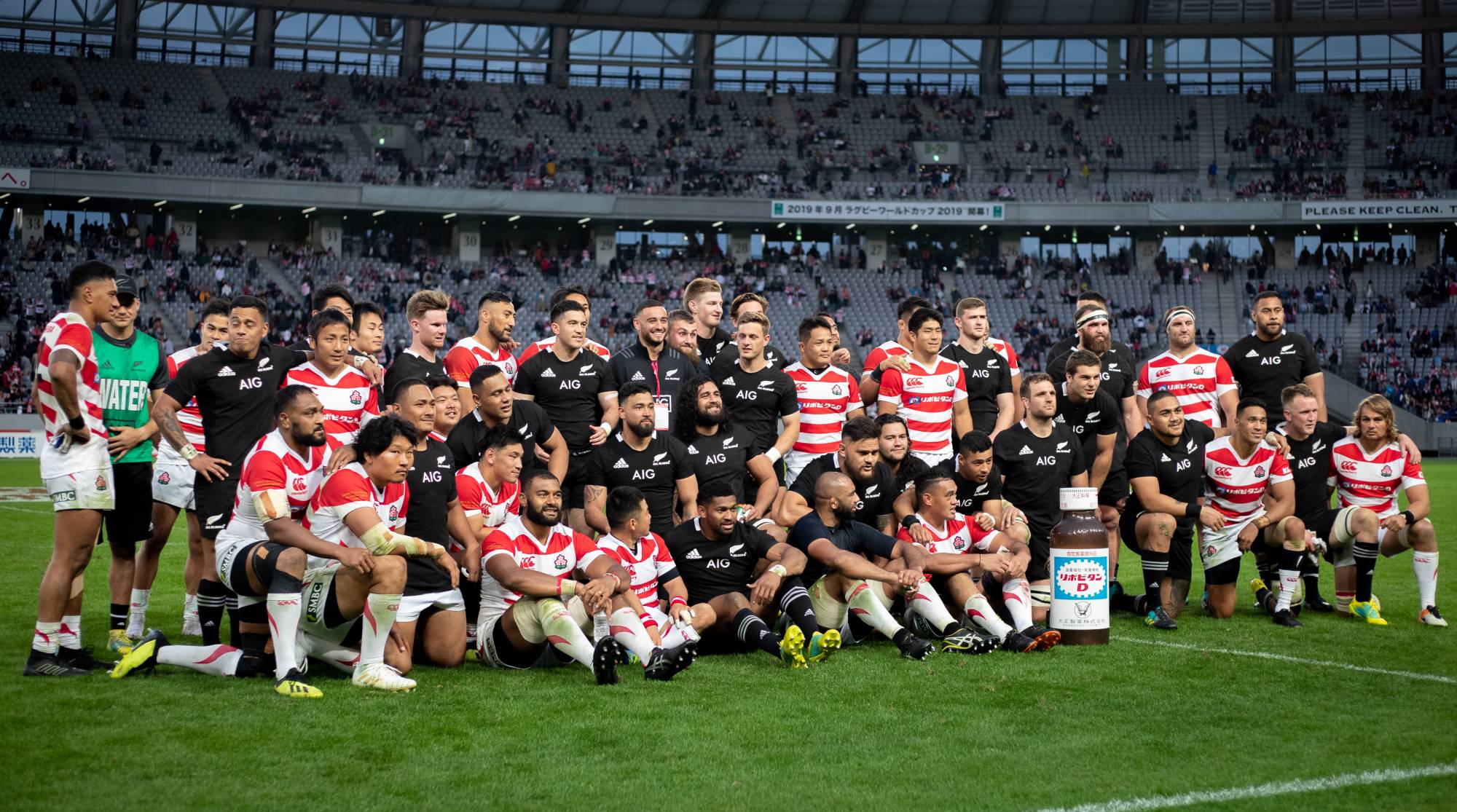
Stemming the black tide has always been an issue for Japan when facing New Zealand, with even a second-string All Blacks team scoring 69 points in 2018 — the last time the sides faced off.
Even so, given this fixture’s history, it’s hard to blame any Japanese fan salivating at the prospect — however slim — of a first victory against New Zealand.
While groundbreaking wins over South Africa and Ireland at consecutive World Cups — and a run to the quarterfinal stage in 2019 — have helped rugby in this country reach unprecedented levels of popularity and participation, the ghost of Japanese rugby’s darkest day at the hands of the All Blacks has yet to be exorcized.
That 145-17 mauling at the 1995 World Cup — in Japan’s first-ever match against a full strength All Blacks team — has left a scar on the history of Japanese rugby and remains unforgotten by the sport globally.
Despite governing body World Rugby certifying Japan as a Tier 1 nation following the 2019 World Cup, where the unbeaten hosts topped a group containing Ireland and Scotland, this country is still constantly referred to as Tier 2 in mainstream media abroad, with “plucky,” “overachieving” and “underdog” being the labels most commonly attached.
Even with Japan’s new professional League One having some of the highest paid players on the planet in action every week, spending a year in that league is routinely described in New Zealand rugby circles as taking a sabbatical.
Although not deliberately disrespectful, the use of such terms illustrates that Japan still has work to do to convince the wider rugby community that this country is at the top table to stay.
Domestic Japanese rugby’s low international profile is one of the reasons the message hasn’t been getting through.
“Exposure to Japanese rugby is so fleeting that beyond the recent France series, it takes test windows for many to refamiliarise themselves with the Brave Blossoms,” wrote Alan Dymock, features editor at Rugby World Magazine.
“Partly, you suspect, the lack of domestic footprints — going either way — impacts this. After Kotaro Matsushima left (France’s) Top 14 and Kazuki Himeno’s excellent stint in New Zealand ended, where are the stars busting out of Japan?
“Flying in the opposite direction, so few test sides (can) select players actively playing in Japan Rugby League One.”

While Japanese rugby waits for its own versions of Hideo Nomo, Ichiro Suzuki or Hidetoshi Nakata to kick open the doors of top-level club rugby abroad, the financial collapse of high-profile Premiership clubs such as Worcester and Wasps could see League One receive more attention in Europe.
From Dymock’s perspective, “The number of players from the U.K. now looking at Japan as a viable career switch is not to be sniffed at, even if not for active test players.
“In an age when the number of elite clubs in England has been chipped away at, while the playing pool remains the same, there will be a fair few players asking their agents to try calling up numbers that start +81.”
Of course, while a historic win against the All Blacks would be a massive boost to the profile of rugby in Japan, this weekend’s game is also a vital part of the Brave Blossoms’ preparations for the 2023 Rugby World Cup.
Both COVID-19’s damage to the once-in-a-lifetime opportunity to capitalize on hosting the World Cup, and the demise of Japan’s sole Super Rugby franchise, has made those preparations more difficult.
According to Freeman, “They’ve been in camp, they’re working hard, but obviously it’s nothing like the length they’ve had before. In the past as well with the Sunwolves, they could pick and choose players that needed match fitness and put them into the Sunwolves for a couple of weeks.”
Saturday’s matchup with the All Blacks, while ostensibly a friendly international, is clearly — for reasons both past and future — set to be the Brave Blossoms’ most important 80 minutes since 2019.



